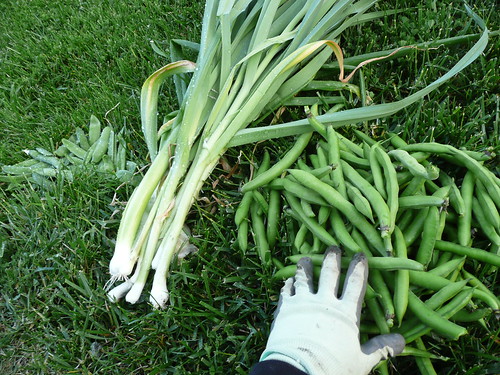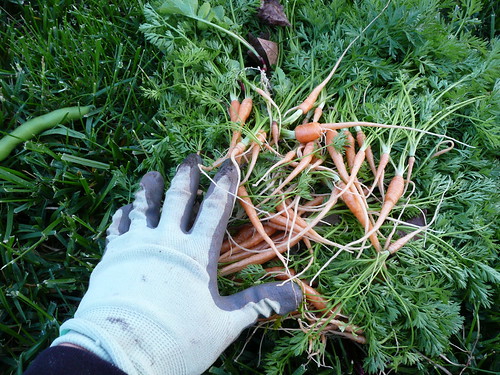There are any number of ways to go about finding the lawyer that is the right fit for your new company. Matt Bartus recently posted his thoughts on some of the questions you should ask.
Overall, I agree with Matt, you should ask all of the questions he poses and evaluate the answers. However, I have a few additional points that you may wish to consider:
1. If you are bootstrapping your company entirely, and do not expect or intend to take any venture financing because you intend to build a successful cash business that you want to privately control, you may need to question much of the traditional “start-up” legal (and business) advice.
Specifically, if you are covering your own costs out of pocket, you will probably best served by finding two or three good specialized solo attorneys or attorneys at smaller law firms who specialize in the types of services you will need for small emerging businesses. These attorneys are likely to offer fast responses to your needs in the areas where you have issues, but they will have significantly less overhead (and thus significantly lower fees) than a traditional large law firm.
While many large law firms defer billing if they believe you will be getting venture capital funding or if you will be experiencing a liquidity event in the near future, if that is not your goal, it is likely that you will be asked to pay your fees to keep your account current.
2. The large law firm industry’s focus on “Senior Attorneys” “Junior Attorneys” and “Partners” is very different from the meritocracy within the start-up culture.
Rather than focus on how advanced an attorney’s skill set is, most large law firms categorize attorneys solely based on the number of years that each attorney has been in legal practice. This means, that in most firms, the titles are not related to how talented or how effective the attorneys are (with the exception of equity partnership, which often is an indicator of excellence as it is peer-selected).
It is possible that a Junior Attorney is actually a professional with 15 years of relevant business experience coupled with 2 years of legal training. In fact, at one law firm where I worked, an individual with a PhD and 18 years of relevant biotech experience started on day one as a “first year associate” in patent prosecution alongside his 24-year-old colleagues who hadn’t worked a day in the professional world. So, while I would agree with Matt that Junior Attorneys are often not more cost effective than attorneys with more experience, that is not always the case.
On the other end, it is possible in some law firms to earn a business card with the title of “Partner” after a set number of years (often 7 or more) so long as the attorney has billed the requisite number of hours each year. In these law firms, the partnership is often stratified between equity partners, income partners, partial equity partners, etc. An income partner may or may not be very talented, but the “Partner” title alone is not sufficient to guarantee that they will provide the skills you need. So, again I agree with Matt: ask for references and follow up.
3. A good solo or small firm attorney can act like in-house counsel — a cost-effective go-to first responder who evaluates the risks and, if necessary, can act as a gatekeeper to help manage the additional service providers who may be necessary to get the job done.
I work in many capacities with my clients, but the most common role I play is this — my clients have identified that the majority of their day-to-day legal needs fall into the category of “commercial contracts” that focus on intellectual property in all of its forms, services, and money. Because this is my specialty, I provide them drafting, editing, advice and legal analysis in this category, and when they ask for something outside of my expertise, I explain my relative inexperience, and let them know that I have a choice:
a) If I think it’s close to my practice area I can do the research and determine whether I think I can learn what I need to know to do a good job and then offer to do it while writing off my professional education time; or
b) I can refer them to someone I believe is a good fit for their needs.
In this way, my role as a solo practitioner is much more like the role a dedicated in-house counsel plays within larger companies (in-fact, I work on-site to support an in-house legal department of a public company one day per week, and in that capacity, I’ve been impressed by how important management of outside law firms is to running a successful legal department).
So, yes, a solo practitioner or small firm attorney who specializes in transactional work can’t walk down the hall and ask a litigation partner how to manage a dispute. But, if they are good, they should have a great network of qualified attorneys to whom they can refer. They can call litigators with whom they are currently working (I’m working with two litigation partners on a dispute for one of my clients right now), or with whom they’d like to work in the future (I’ve had several litigators take me out to lunch to pitch their expertise and desire to work with my clients) and ask for some professional courtesy advice.
A solo or small firm attorney can refer you to the best fit, no matter who they are, without fear of offending “the attorney down the hall.” And, if you do (and I hope you don’t) find yourself in need of a litigator, a good solo (like a good in-house counsel) can help you manage a competitive bidding process to ensure you get the best fit at the most cost effective price for your needs.




